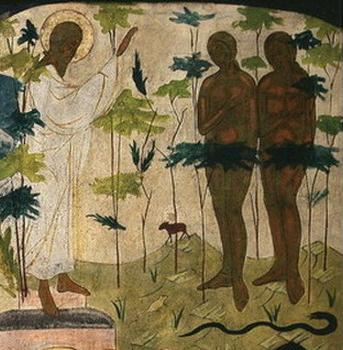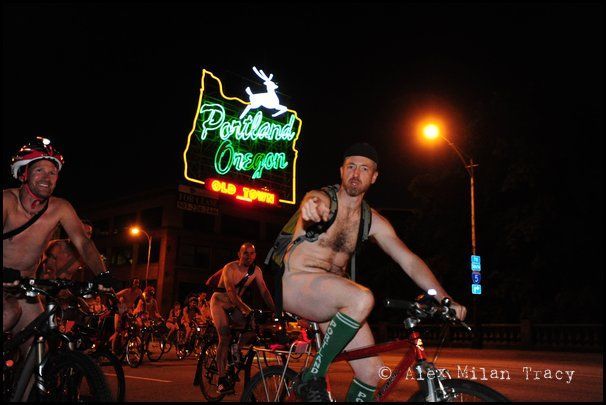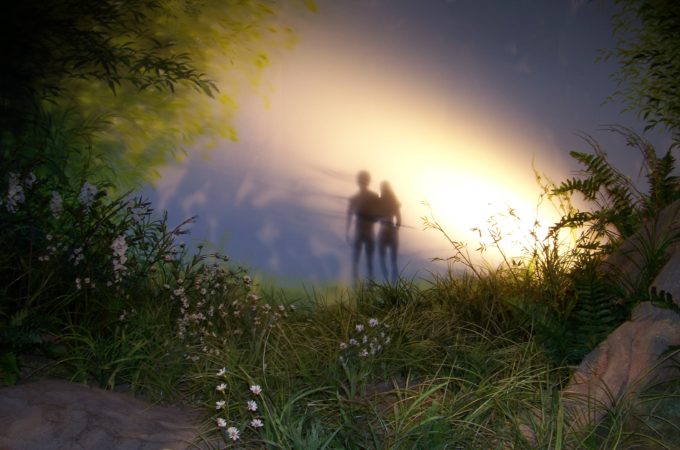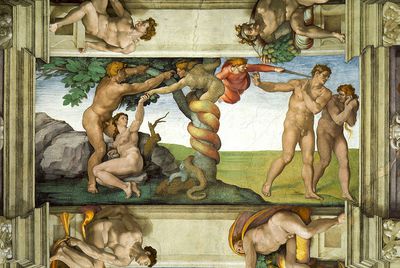In the previous post we noted that in the Garden of Eden, the man and woman were naked, yet there was no moral guilt or shame. There was only glory and joy.
But something happened in paradise. At the instigation of “the intruding liar” in the garden, the man and the woman rebelled against their Creator. This rebellion had tragic consequences on Adam and Eve and the entire human family. From naked and not ashamed they become naked and afraid.
Genesis 3:7-10 records this turn from glory to shame.
 Then the eyes of both were opened, and they knew that they were naked. And they sewed fig leaves together and made themselves loincloths.
Then the eyes of both were opened, and they knew that they were naked. And they sewed fig leaves together and made themselves loincloths.
And they heard the sound of the Lord God walking in the garden in the cool of the day, and the man and his wife hid themselves from the presence of the Lord God among the trees of the garden. But the Lord God called to the man and said to him, “Where are you?” And he said, “I heard the sound of you in the garden, and I was afraid, because I was naked, and I hid myself.”
In their created state they had an intimate relationship with God and with one another. There was beautiful, holy, intimate knowledge. There was no reason for shame as they lived in a state of perfect innocence, without moral guilt.
But when they rebelled, their relationships—with God and with one another—were shattered. The state of innocence was broken. They were ashamed. They tried to hide from God. They were no longer innocent, they were naked and afraid.
Their decision to rebel against God and the moral order brought disaster to human history that has lasted to this day. Since the fall, the human body is seen as shameful. The fallen nature of men leads to lust toward women. Too often women lure men with revealing clothing and seductive charms. Both men and women need to take responsibility for their part in this tempting dance.
A tragic separation
This disaster amounts to disintegration, a separation between the transcendent nature of masculine and feminine and the physical manifestation in the male and female body. The transcendence of masculine and feminine was lost. When the body is separated from its transcendent nature and the intimacy of yada, it is reduced merely to physical function and sexual plumbing.
The term “naked” in Genesis 3:7 is a slight variation from the same term in 2:25, a variation which adds a dimension of shame. Now, the nakedness has a different effect on the psyche of the human. It leads to shame, to being naked and afraid.
Shame can refer to poverty or destitution. The act of rebellion brought comprehensive poverty and destitution, utter ruin to the first couple and to the whole human family.
Two more key words in this section bear study: “afraid,” and “hid.”
Adam and Eve tried to hide. Their sin brought the moral and emotional response of fear, which led to an irrational response, trying to hide from God. “I was afraid (to be frightened or fearful), because I was naked, and I hid (to conceal an object or information so it cannot be known, to withdraw from the presence from another).”
Their rebellion against God brought fear and shame. In their foolishness they thought they could hide their nakedness from God. They covered their nakedness with fig-leaf aprons and tried hiding among the trees.
In the beginning, love had defined their relationship with God. Now that relationship was marked by fear and dishonesty. “Men loved darkness instead of light because their deeds were evil,” (Joh 3:19 NIV).
God’s design was never naked and afraid
 People are atheists for moral reasons; they want license to have sex and flaunt nudity as they please. They reduce sex from intimacy and procreation to recreation and insignificance. They regard nudity as an enticement and seduction for frivolous sex. They want to be shameless in the face of their shameful behavior, a la Portland, Oregon’s annual naked bike ride.
People are atheists for moral reasons; they want license to have sex and flaunt nudity as they please. They reduce sex from intimacy and procreation to recreation and insignificance. They regard nudity as an enticement and seduction for frivolous sex. They want to be shameless in the face of their shameful behavior, a la Portland, Oregon’s annual naked bike ride.
In a fallen world, the holy, sacred nakedness and sexuality are replaced with the pagan flaunting of nakedness in its most depraved norms. Men look lustfully at womens’ bodies. Women dress provocatively to entice men. Fallen humans corrupt God’s good gift.
Sex was not an afterthought of God. Rather, it was His forethought, built into the design of human beings, male and female, to form families as the stewards of creation. The Song of Solomon is a grand love poem that reflects the intimacy of God and His people reflected in the beauty of physical and soulish union of marital love.
God’s intention is that we share our nakedness in the bounds of a sacred covenantal marriage relationship between a man and a women. Here we may be naked and not ashamed.
– Darrow Miller







